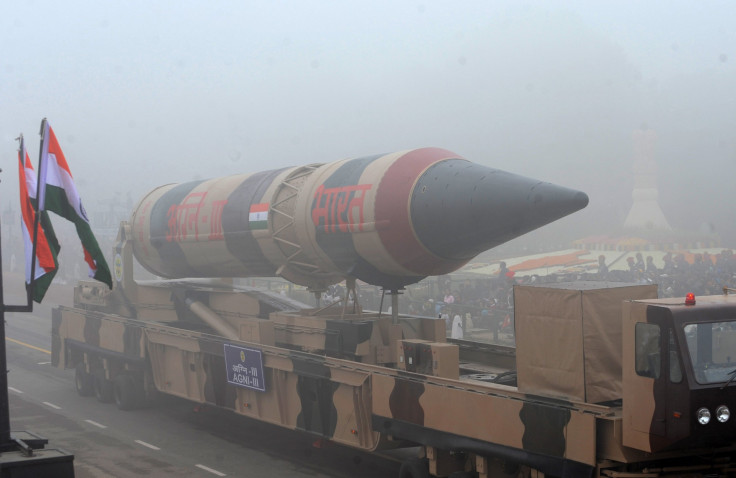India Tests Nuclear-Capable Agni-I Ballistic Missile, Developed Domestically

India test-fired a domestically developed nuclear-capable ballistic missile, Tuesday, from a testing range off the coast of Odisha, an eastern state of the country.
According to a report by the Indian Express, the Strategic Forces Command of the Indian Army conducted the user trial of the Agni-I ballistic missile from launch pad-4 situated in the Integrated Test Range (ITR) at Abdul Kalam Island in Balasore.
According to defense sources, the 18th version of the Agni-I missile, which has a range of 700 kilometers (435 miles), achieved all the parameters within the estimated time frame.
The sources also stated that the missile was inaugurated into service in 2004.
The launch of the Agni-I, which is a surface-to-surface, single-stage missile powered by solid propellants, was part of a training exercise by the armed forces, the sources added.
The launch of the missile re-established the fact that the Indian Army was ready to fire the missile in a small amount of time, the sources said.
The missile weighs 12 tons and is 15-meter-long and has the capacity to carry 1000 kilograms worth of payloads. The missile is also equipped with a specialized navigation system which enables it to reach its target with high accuracy and precision. The missile also gave an excellent performance in terms of its range and accuracy, the report stated.
The Strategic Forces Command previously tested the same missile on March. 14, 2016, from the same venue. According to a report by India Today, during the testing, the missile traveled a distance of 700 kilometers within a time frame of 9 minutes and 36 seconds, as stated by a defense official.
The course of the missile was tracked via a battery of complex radars, telemetry observation stations, naval ships and electro-optic machines which traced the missile since its launch until it struck its target with accuracy, the official added.
Recently, on Jan. 18, 2018, India successfully completed its “first pre-induction trial” of a 5000 kilometer-range (3017 miles) intercontinental ballistic missile (ICBM), Agni-V.
According to a report by The Times of India, sources stated that the Agni-V, which is the nation’s most formidable missile would be going through another pre-induction trial “within this year” before the missile joins the Agni-V unit which was established by the tri-Service Strategic Forces Command.
The report further stated that once the Agni-V gets inducted, India would join an elite-list of countries with ICBMs in their arsenal. The list includes nations like the United States, the United Kingdom, Russia, China and France.
The Agni-V weighs above 50 tons and is capable of carrying nuclear warheads weighing up to 1.5 tons. The missile was previously tested in “developmental or experimental trials.”
A defense ministry official said: “The missile's flight performance was tracked and monitored by radars, range stations and tracking systems all through the mission.”
“All mission objectives were successfully met. This successful test of Agni-V reaffirms the country's indigenous missile capabilities and further strengthens our credible deterrence,” the official added.
© Copyright IBTimes 2024. All rights reserved.





















